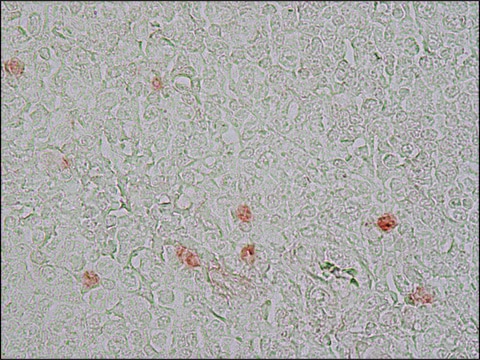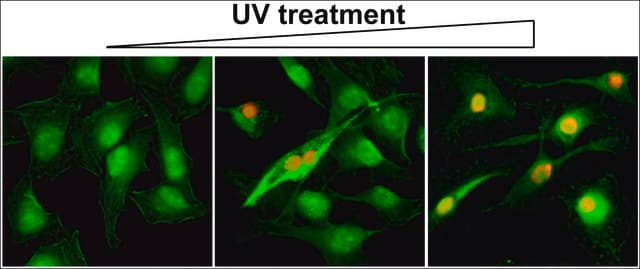SAB5500134
Anti-KI-67 antibody, Rabbit monoclonal
recombinant, expressed in proprietary host, clone SP6, tissue culture supernatant
Selecione um tamanho
R$ 1.431,00
Selecione um tamanho
About This Item
R$ 1.431,00
Produtos recomendados
fonte biológica
rabbit
Nível de qualidade
recombinante
expressed in proprietary host
conjugado
unconjugated
forma do anticorpo
tissue culture supernatant
tipo de produto de anticorpo
primary antibodies
clone
SP6, monoclonal
reatividade de espécies
human (tested)
reatividade da espécie (prevista por homologia)
bovine
técnica(s)
immunohistochemistry: 1:200
Isotipo
IgG
nº de adesão UniProt
Condições de expedição
wet ice
temperatura de armazenamento
2-8°C
modificação pós-traducional do alvo
unmodified
Informações sobre genes
human ... MKI67(4288)
Descrição geral
Imunogênio
Aplicação
Ações bioquímicas/fisiológicas
Características e benefícios
forma física
Exoneração de responsabilidade
Não está encontrando o produto certo?
Experimente o nosso Ferramenta de seleção de produtos.
Código de classe de armazenamento
10 - Combustible liquids
Classe de risco de água (WGK)
WGK 2
Ponto de fulgor (°F)
Not applicable
Ponto de fulgor (°C)
Not applicable
Escolha uma das versões mais recentes:
Certificados de análise (COA)
Não está vendo a versão correta?
Se precisar de uma versão específica, você pode procurar um certificado específico pelo número do lote ou da remessa.
Já possui este produto?
Encontre a documentação dos produtos que você adquiriu recentemente na biblioteca de documentos.
Os clientes também visualizaram
Active Filters
Nossa equipe de cientistas tem experiência em todas as áreas de pesquisa, incluindo Life Sciences, ciência de materiais, síntese química, cromatografia, química analítica e muitas outras.
Entre em contato com a assistência técnica









